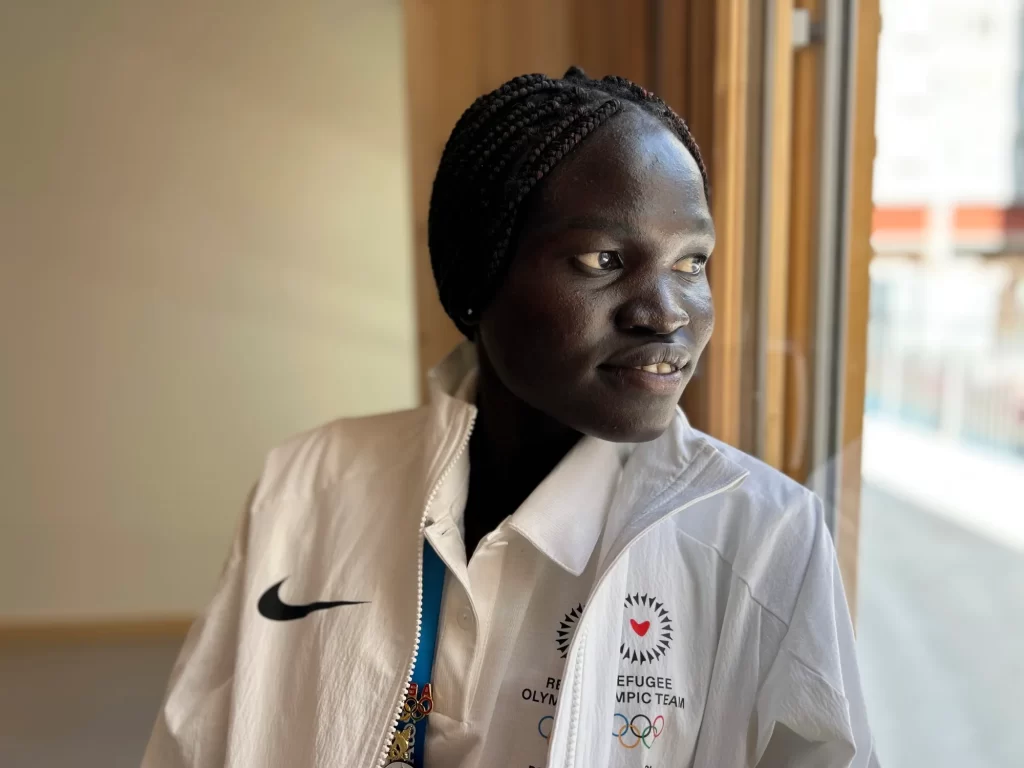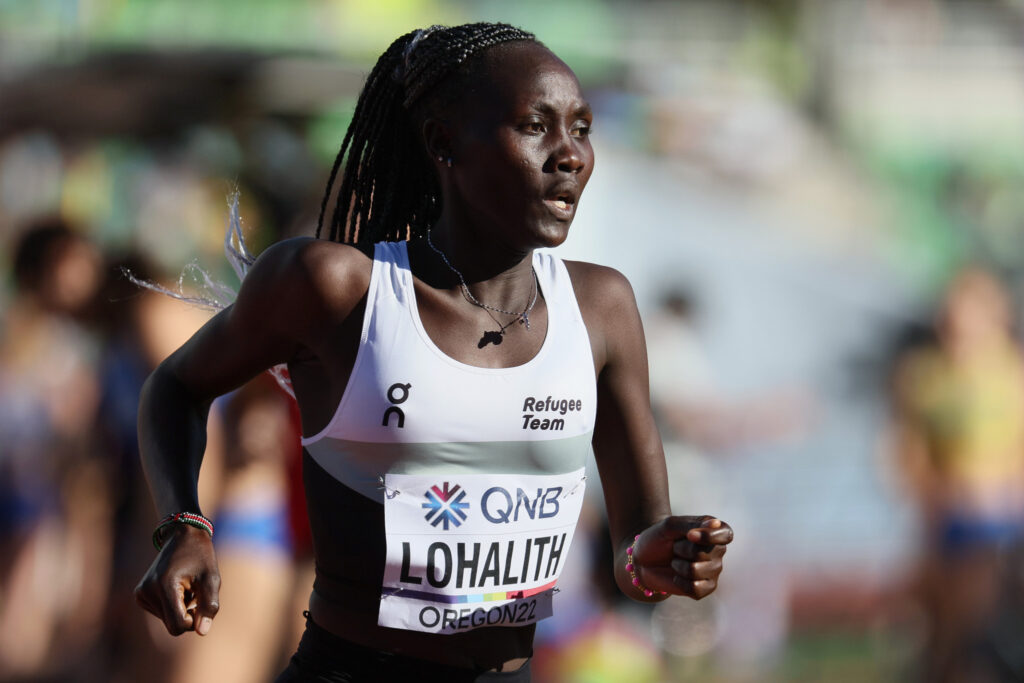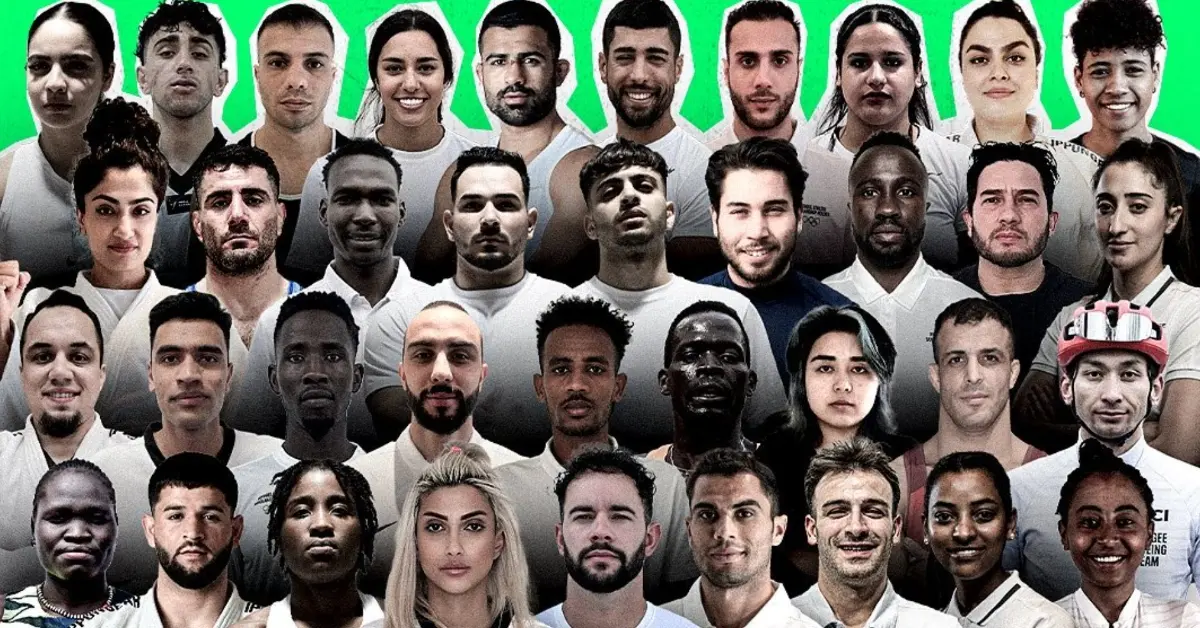The 2024 Paris Olympics has seen a significant expansion of the Olympic refugee team, with 37 athletes from 11 countries competing under the Olympic flag. This growth highlights the increasing focus on global migration issues and the push for greater inclusion of displaced individuals in international sports.

Among these athletes is 21-year-old Perina Lokure Nakang, a South Sudanese runner who began her athletic journey with a 9-mile run near her refugee camp in northwestern Kenya. Nakang’s story exemplifies the transformative power of sports for refugees, as she now competes on the global stage of the Olympics.
“I told myself if I continue running this, it is going to change my life,” Nakang said. “In the Olympics, everyone is looking to me to represent them.”
The Olympic refugee team, a collaboration between the International Olympic Committee and the UN High Commissioner for Refugees (UNHCR), has grown significantly since its inception at the 2016 Rio Olympics, where it featured just 10 athletes from four countries. The team now includes athletes who have fled nations ranging from Cuba to Afghanistan and South Sudan.

Filippo Grandi, the UN High Commissioner for Refugees, emphasized the team’s symbolic importance. “It is a symbol of inclusion, of equality, of achievement for a large community around the world of refugees and displaced people,” Grandi told The Associated Press. His support for the Olympic refugee team was recognized during the opening ceremonies, where he received the Olympic laurel.
The expansion of the refugee team comes at a time when the Olympics are underlining themes of diversity and inclusion, set against a backdrop of historic global migration. However, the Games are also taking place during a period of tension in France, with the rise of anti-immigration policies and controversies surrounding the treatment of migrants in Paris.

Former refugee Olympians like Yiech Pur Biel, who competed in 2016 and now works with UNHCR, see the Olympic platform as crucial in humanizing refugees and displaced individuals. Biel hopes the team can “bring back the dream of refugees” and demonstrate “what refugees can do.”
While the growth of the refugee team is celebrated, there’s also a bittersweet aspect to its expansion. As Biel notes, “We don’t want to see (refugee populations) growing, but no one can control what is happening in the world.” The ultimate goal, he says, is to end the need for a refugee team altogether.
As the Paris Olympics progress, the refugee athletes continue to captivate audiences and spark discussions about global migration, inclusion, and the power of sports to transcend borders and conflicts. Their performances not only showcase individual talent but also represent the resilience and potential of millions of displaced people worldwide.
The presence of the refugee team at the Olympics serves as a powerful reminder of sport’s ability to unite people across diverse backgrounds and experiences, offering hope and dignity to those who have been forced to flee their homes.
AP



